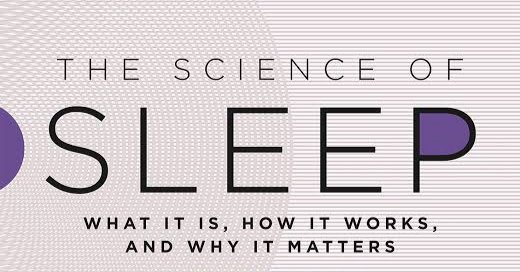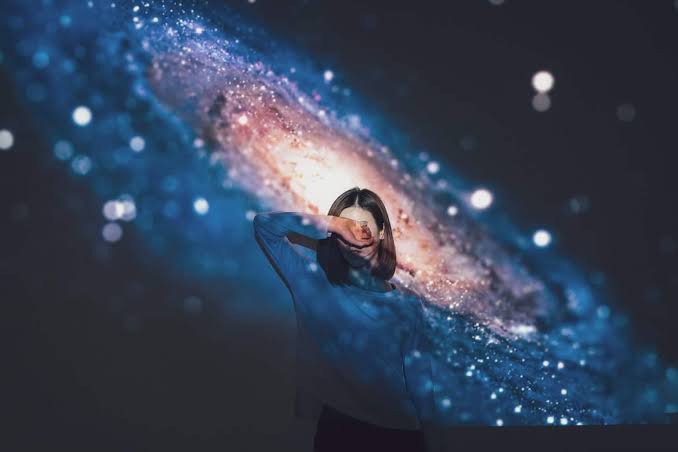
What did you understand by the word Sleep? According to the teens its the most relaxeable time, according to adult its the time where they can give up from stress and everything going in there mind and according to old aged people its the to regain their remaining strength and healing time for their body. But its interesting to know that Sleep is also related to Science. In this blog we will find the science behind sleep. Hope you enjoy..
Before the 1950s, most people believed sleep was a passive activity during which the body and brain were dormant. “But it turns out that sleep is a period during which the brain is engaged in a number of activities necessary to life—which are closely linked to quality of life,” says Johns Hopkins sleep expert and neurologist Mark Wu, Ph.D researchers like Wu are spending many of their waking hours trying to learn more about these processes and how they affect mental and physical health. Here is a glimpse into the powerful (often surprising) findings of sleep researchers—and what they’re still trying to discover about the science of sleep.
•Types Of Sleep
There are two types of sleep
- Rapid Eye Movement Sleep(REM)
- Non-Rapid Eye Movement Sleep
The first part of the cycle is Non-REM Sleep, which is composed of four stages. The first stage comes between being awake and falling asleep. The second is light sleep, when heart rate and breathing regulate and body temperature drops. The third and fourth stages are deep sleep. Though REM sleep was previously believed to be the most important sleep phase for learning and memory, newer data suggests that Non-REM Sleep is more important for these tasks, as well as being the more restful and restorative phase of sleep.
As you cycle into REM Sleep, the eyes move rapidly behind closed lids, and brain waves are similar to those during wakefulness. Breath rate increases and the body becomes temporarily paralyzed as we dream.
The cycle then repeats itself, but with each cycle you spend less time in the deeper stages three and four of sleep and more time in REM sleep. On a typical night, you’ll cycle through four or five times.
There Are Two Main Process To Regulate Sleep
- Circadian Rhythms are controlled by a biological clock located in the brain. One key function of this clock is responding to light cues, ramping up production of the hormone melatonin at night, then switching it off when it senses light. People with total blindness often have trouble sleeping because they are unable to detect and respond to these light cues.
- Sleep Drive also plays a key role: Your body craves sleep, much like it hungers for food. Throughout the day, your desire for sleep builds, and when it reaches a certain point, you need to sleep. A major difference between sleep and hunger: Your body can’t force you to eat when you’re hungry, but when you’re tired, it can put you to sleep, even if you’re in a meeting or behind the wheel of a car. When you’re exhausted, your body is even able to engage in microsleep episodes of one or two seconds while your eyes are open. Napping for more than 30 minutes later in the day can throw off your night’s sleep by decreasing your body’s sleep drive.
•DREAMING

Dreaming is also a important and sometimes curious part of sleep. Dreaming occurs during REM (rapid eye movement) sleep, which has been described as an “active brain in a paralyzed body.” Your brain races, thinking and dreaming, as your eyes dart back and forth rapidly behind closed lids. Your body temperature rises. Your blood pressure increases, and your heart rate and breathing speed up to daytime levels. The sympathetic nervous system, which creates the fight-or-flight response, is twice as active as when you’re awake. Despite all this activity, your body hardly moves, except for intermittent twitches; muscles not needed for breathing or eye movement are quiet. People think that the dreams the saw is some scenes of incident that was happened or will happen in their whole spam of life. But according to research its just the thoughts that was going through your brain before sleeping or the thoughts which u are thinking from very long.
•Why Is Sleep Is So Important?
The quality of your sleep directly affects your mental and physical health and the quality of your waking life, including your productivity, emotional balance, brain and heart health, immune system, creativity, vitality, and even your weight. No other activity delivers so many benefits with so little effort! When you’re scrambling to meet the demands of a busy schedule, though, or just finding it hard to sleep at night, getting by on less hours may seem like a good solution. But even minimal sleep loss can take a substantial toll on your mood, energy, mental sharpness, and ability to handle stress. And over the long-term, chronic sleep loss can wreak havoc on your mental and physical health.
•How Many Hours Of Sleep Is Needed
Sleep requirements vary slightly from person to person, most healthy adults need between 7 to 9 hours of sleep per night to function at their best. Children and teens need even more. And despite the notion that our sleep needs decrease with age, most older people still need at least 7 hours of sleep. Since older adults often have trouble sleeping this long at night, daytime naps can help fill in the gap.
•Effects Of Sleep Deprivation
Its seems like sleep deprivation doesn’t effect to much but according to some researches it causes very vital effects. Yeah its effects will not occur faster but after a period of time it will show the damage it did
The effects include:
- Fatigue, lethargy, and lack of motivation
- Moodiness and irritability; increased risk of depression
- Decreased sex drive; relationship problems
- Impaired brain activity; learning, concentration, and memory problems
- Reduced creativity and problem-solving skills; difficulty making decisions
- Inability to cope with stress, difficulty managing emotions
- Premature skin aging, and many more dangerous effects.
Sleep is like the natural self healing to our body. But if u are sleeping more then the requirement then it also have its own disadvantages. But due to this disadvantages if you are not sleeping at all then its have more dangerous effects. So make a balance between this it will help you amd your body. Today’s teen children are spending whole whole nights with their self phones and other devices due to that they are behaving lazy all the time in day and can’t focusing on their respective works. I recommend them to take at least get 7-8 hour.
A writer wrote, Sleep Is The Best Meditation.

Thus blog is about sleep but i awake by reading this its so interesting..😯
LikeLike